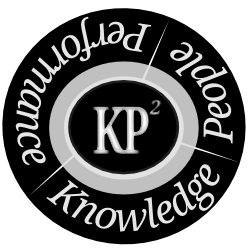I really like Google Alerts and think they are a great resource for researchers and practitioners alike. I’ve subscribed to a number of keywords, e.g. dynamic capabilities and online communities, and thus get fresh articles delivered by email several times a week. I have made it a habit to go through them and it now feels a bit like reading the morning paper ;-). Admittedly, it is a rather time-consuming process, yet I do feel it helps me significantly to stay up to date in my field. Continue reading My Top 3 Articles for 2012
Tag: strategy
AoM Symposium: Microfoundations of Dynamic Capabilities
At this year’s Academy of Management Conference, which will take place in Orlando, Florida, my colleague Markus Vodosek and I are going to organize a symposium entitled Microfoundations of Dynamic Capabilities. The symposium will feature presentations by Jeff Martin, whom I met for the first time in 2012, and several of my colleagues from the PhD program on Dynamic Capabilities and Relationships. Margaret Peteraf has agreed to serve as a discussant for the session.
The symposium is sponsored by the Business Policy and Strategy Division, the Organization and Management Theory Division, and the Technology and Innovation Management Division. Our session is scheduled for Monday, August 12, 2013, from 4:45pm to 6:15pm at WDW Swan Resort in Pelican 1. If you are a scholar interested in dynamic capabilities and their microfoundations, we hope to meet you there.
Call for Papers: Journal of Strategic Information Systems
Here is an interesting call for papers for those of you studying social media from a strategic perspective. The special issue of the Journal of Strategic Information Systems is entitled “Strategic and policy perspectives on social media technologies” and will be edited by Sirkka Jarvenpaa, Sandy Staples, and Robin Teigland. The submission deadline is November 30, 2013. The description reads as follows:
The widespread diffusion and proliferation of social media technologies and tools present organizations of all sizes and shapes with numerous strategic and policy-oriented opportunities and challenges. Moreover, such technologies and tools have fundamentally transformed how various external and internal stakeholder relationships are influenced and managed, how brand loyalty is built, how talent is attracted and employment commitment is built, how innovations (products, services, business models, processes) are created and appropriated, how knowledge is created and shared both within and across organizational boundaries, how funding is raised, how control is exercised, how policies are developed and diffused, and how laws are interpreted. This special issue invites papers that build our understanding of these phenomena.
Dynamic Capabilities: A Definition, Visualization, and some References
The PhD program I am enrolled in is called ‘Dynamic Capabilities and Relationships’. One question I hear frequently from both colleagues and friends is: What are these dynamic capabilities? This post aims at providing a definition, a graph, and some references that I can refer people to when I hear this question again in the future.
Dynamic capabilities have emerged as a major stream in the field of strategy research over the past 15 years (Eisenhardt and Martin, 2000; Hodgkinson and Healey, 2011; Teece, Pisano, and Shuen, 1997). They are defined as “the firm’s processes that use resources – specifically the processes to integrate, reconfigure, gain and release resources – to match and even create market change. Dynamic capabilities thus are the organizational and strategic routines by which firms achieve new resource configurations as markets emerge, collide, split, evolve, and die” (Eisenhardt and Martin, 2000, p. 1107). At their core, the development of dynamic capabilities is the response of strategy researchers to an ever-changing world. Continue reading Dynamic Capabilities: A Definition, Visualization, and some References
Social Software, Strategic Management & Dynamic Capabilities
The doctoral program I’m in right now is called Dynamic Capabilities and Relationships, in short DCR. I’ve been trying for a while to make connections between the phenomenon I’m interested in, i.e. social software use in organizations, and strategic management. With publications like the one below from Haefliger and colleagues, bridges are being built and the path from the former to the latter is being made visible. I did not come across any work to date, however, that would explicity address the link between social software use and its implications on (the strategic management concept of) Dynamic Capabilities. Reading the below passage in a MISQ comment by Ann Majchrzak got me really excited:
Yet many contributors to organizational wikis […] organize others’ contributions not for social exchange or social capital motives, but instead because they are genuinely concerned about the organization’s ability to adapt to the needs of a volatile environment (Majchrzak et al. 2006). Not only should findings like this encourage us as researchers to rethink social exchange and social capital theories, but they also should encourage researchers in other domains, such as dynamic capabilities models (Eisenhardt and Martin 2000) to modify their theories to include information shaping as an important dynamic capability of a firm.
We’ll have Jeff Martin, the second author of the latter paper quoted my Majchrzak, over in Berlin in a couple of weeks and I’ll make sure to bring this issue up while he’s here. In case you’re interested, here’s an interview with him about the paper mentioned above and the idea behind Dynamic Capabilities: Jeffrey Martin on competing in fast-moving dynamic environments.
References:
Eisenhardt Kathleen, M., & Martin Jeffrey, A. (2000). Dynamic capabilities: What are they. Strategic Management Journal, 21(10/11), 1105–1121.
Haefliger, S., Monteiro, E., Foray, D., & von Krogh, G. (2011). Social Software and Strategy. Long Range Planning, 44(5-6), 297–316. doi:10.1016/j.lrp.2011.08.001
Majchrzak, A., Wagner, C., & Yates, D. (2006). Corporate wiki users: results of a survey. Proceedings of the 2006 international symposium on Wikis, WikiSym ’06 (pp. 99–104). New York, NY, USA: ACM. doi:10.1145/1149453.1149472
Majchrzak, A. (2009). Comment: Where is the Theory in Wikis? Management Information Systems Quarterly, 33(1), 18–20.

